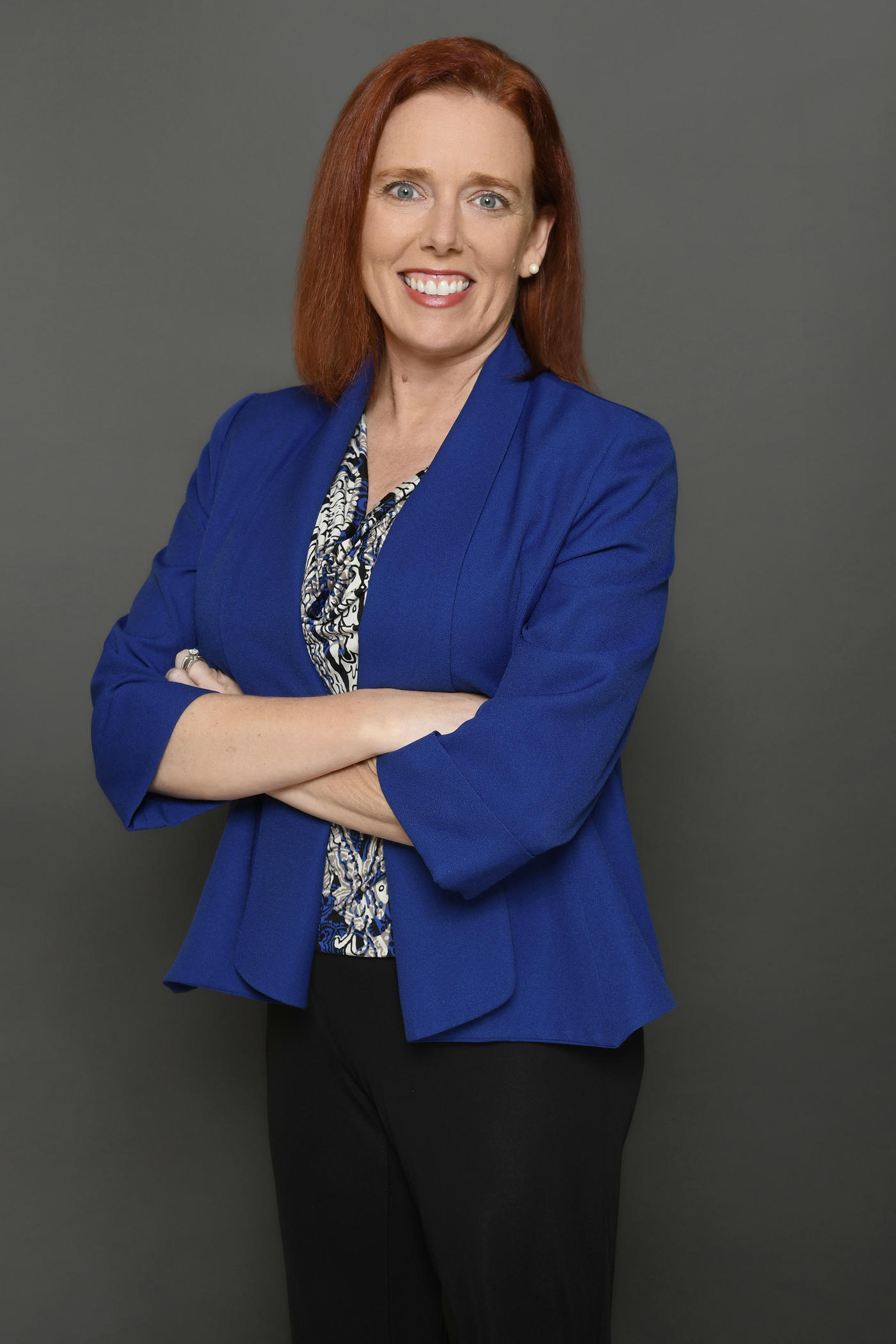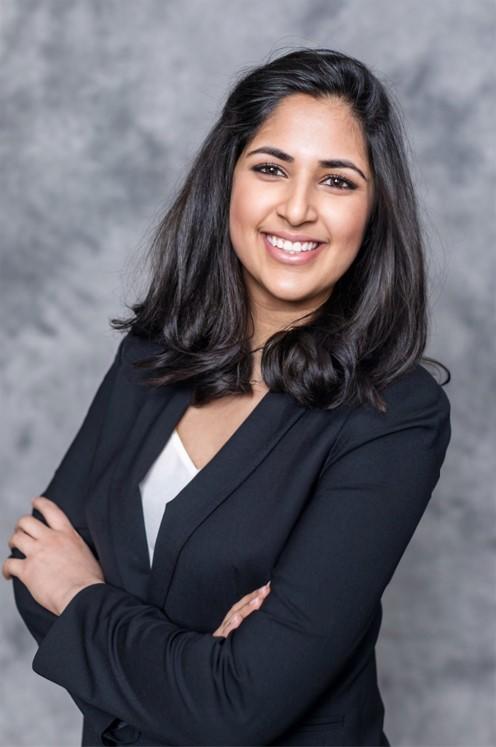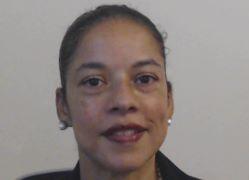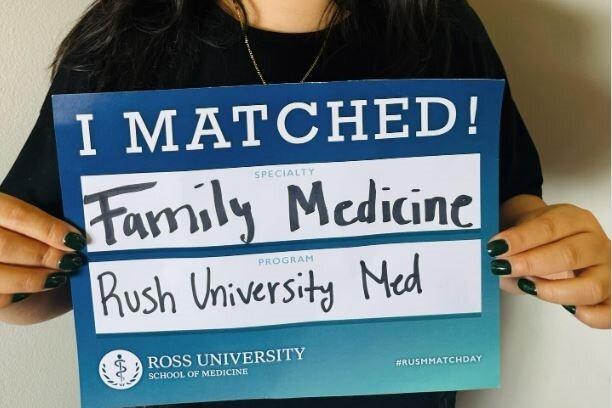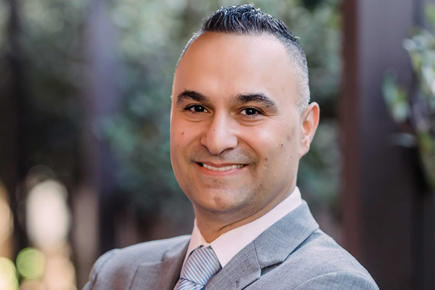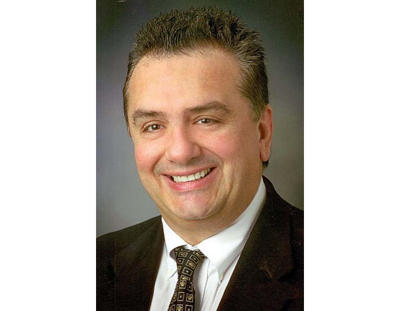September is Women in Medicine Month. Ross University School of Medicine (RUSM) celebrates the contributions and accomplishments of women — both inside and outside our walls — who are advancing medicine and medical education.
Women physicians, once seen as a rarity, are steadily gaining traction in the overall physician workforce. According to the Association of American Medical Colleges (AAMC), the number of women physicians has increased eight percent from 2007 to 2019, now representing 36.3% of the total physician population. We celebrate and support all the women in our RUSM community; here are a few helping to advance the field in many ways.
Heidi Chumley, MD, MBA, Dean
New RUSM Dean Heidi Chumley, MD, MBA, represents a small group of women leading academic medicine. According to the AAMC’s 2020 report, The State of Women in Academic Medicine 2018-2019, 18% of U.S. medical school deans and 18% of division chiefs are women. Since 2009, the number of women deans has increased, on average, by just one percentage point each year — a trend the AAMC concludes will persist unless schools create more leadership opportunities earlier in women’s career paths.
A family medicine physician by training, Chumley encourages women to stand up for equality, change the narrative and ensure their voice is heard. “People have assumed that I wasn’t the attending physician or the leader in the room because I was a woman. It’s our job to change that by gracefully promoting who we are. Instead of saying ‘I’m in healthcare,’ we need to say, ‘I’m studying to become a doctor’ or ‘I’m a physician.’”
Chumley also recommends women embrace their strength in relational skills. “Don’t undersell your ability to relate to others because it’s central to being a great physician.” As a resident, Chumley said she developed a love for teaching medicine, and she credits mentors and family for supporting her advanced career path. Her leadership journey began when she was a physician at the University of Kansas Medical Center and learned of an internal search for a senior associate dean. Though she believed she would someday have a role at that level, she thought it was a stretch as it was four levels above her current post. “The dean wanted applicants to submit a written vision for the position. I had the opportunity, took a chance and I got it.” After 17 interview rounds, she landed her dream job and now pays it forward.
“I want women to understand their worth and leverage their abilities to get what they want and need,” Chumley said about championing for positions, flexible hours or the balance between working and being a mother. “The field is getting better, but it hasn’t always been woman-friendly. Raise your hand for leadership roles and ensure that when important decisions are being made, women’s voices are included. Take a stand on what’s important. If you look around and you are the only woman at the table, raise the issue, and advocate for yourself and for women in the field.”
Moon Usman, Fourth-Year Medical Student
Improving healthcare equity for women is what initially drove fourth-year clinical student Moon Usman to medical school. The RUSM Community Health Leadership Scholar and 2021 Spring Empower scholarship recipient shared challenges her parents faced with healthcare access both in and out of the developing world.
“My parents’ journey — giving birth and raising children in resource-limited areas — highlighted problems and motivated me to create goals to improve healthcare equity,” Usman said in her thank-you statement for the 2021 Spring Empower scholarship. “I have deep admiration for the stories of their hard work and sacrifices. I aspire to be a physician who can not only help improve patient health but also offer pragmatic solutions. Healthcare is not perfect anywhere, and we can see the stark distinction between wealth and race in healthcare outcomes. My aim is to support my community in New York but also remain and advocate for healthcare access abroad.”
Learning the Value of Community
The youngest of six children, Usman began medical research and advocacy efforts in college at DePauw University in Indiana — as a women’s health lobbyist on Capitol Hill, a global fellow for Planned Parenthood Federation of America, speaker at the XIX international youth AIDS pre-conference, and author of manuscripts and case reports ranging from therapies in non-small cell lung cancer to healthcare disparities in otorhinolaryngology. It was during her tenure as a clinical research supervisor overseeing drug trials at Sloan Kettering Hospital that she realized she wanted more from her medical role. “I knew pervasive healthcare issues went far beyond medicine, and I couldn’t assume other people would fix the problems I hoped to one day address.” A few weeks later she started at RUSM.
Usman is pursuing a residency in general surgery and currently completing her surgery sub-internship at Weill Cornell Medical Center — New York-Presbyterian. “I want to lead a team, manage a crisis and help patients in all walks of life.” The first-generation college graduate hopes to one day balance healthcare equity, advocate for those without voices and join a medical team involved with disaster-relief efforts. “The opportunities I have had may not be available to others. I’d like to pay forward my fortune and experiences to help both my community and patients in the future.”
Desiree Stelly, DNP, MBA, RN, BS, CLNC; Manager, Standardized Patient Program
A staunch advocate for women, RUSM’s Desiree Stelly, DNP, MBA, RN, BS, CLNC, tells it like she sees it and isn’t afraid to lock horns with doubters of her ability or dreams. The manager of the standardized patient program in the Department of Clinical Foundations uses her convictions to engage others in her fight for fairness across gender and race lines.
“I’ve competed my whole life to show I can do anything a man can do,” says Stelly, who grew up in a household in which her father felt women should stay home. “I engage with people, male or female, and capture their attention by using a strong handshake, looking them in the eye and telling them what I can do for them,” said the RUSM Diversity and Inclusion Taskforce member. “I am a capable, proud Black woman who doesn’t have to ‘fake it till I make it,’ appreciating that sometimes, I may have to fake it, till I am it. I have the confidence to know what I want, and I find a way to get it.”
Raised in a strong religious family with six sisters and one brother, Stelly planned to become a nun and live a life of service and giving to others. It was her priest during freshman year of undergrad who encouraged her to expand her horizons, saying she was called to do more than serve the church. Stelly set her sights on nursing — “I knew I had that level of humility to serve people in their most vulnerable state.” She served one year as a hospice nurse and gained a new appreciation on life. “I realized the importance of engagement in who you are and the need to become better. It deepened my purpose to seize the moments afforded to us and that the human experience matters. We must never forget, ‘the only time it’s ok to look down on anyone is if you’re bending over to lift them up!’”
Seasoned Background
Stelly has been a valued member of the medical community for more than 20 years. Determined to learn the healthcare system from the ground up, she served in various capacities and her resume is peppered with impressive roles — certified nursing assistant, laboratory specialist and phlebotomist, Kid Med coordinator, clinic manager, clinical director of nursing and nurse educator. Dedicated to lifelong learning, she added her newest accolade — doctorate of nursing practice — last month. While earning her Master of Science in Nursing degree in 2014 and simultaneously pursuing her Master’s in Business Administration, Stelly found her passion for medical excellence in patient advocacy — diagnosis, care management, quality improvement and ethical accountability.
When she applied to RUSM in 2019 and learned she’d be the only nurse on staff, Stelly didn’t hesitate, knowing she’d found the right fit. “I knew I could make a difference, and at my six-month check-in, they said I had superseded expectations.”
Stelly may have tackled insurmountable barriers throughout her career — simply because she’s a woman and because she’s Black, but she wouldn’t change any of it. Learning from each experience, she urges others to be intentional in their pursuit; to keep fighting to find the positive. “You will have setbacks but hold your head high. Have faith and never back down. Life is full of beautiful stories and you have to remain dedicated to spreading the sunshine while living your own story.”
RUSM Alumna Karleigh Curfman, MD ’16
Joining other female trailblazers in the medical field, RUSM alumna Karleigh Curfman, MD ’16, broke the misconception that women could only hold one position — a physician or a mother. And then she took it a step further and burst the glass ceiling in the surgical world.
“Surgery was known as an old boys’ club but that’s finally starting to disappear because there are females who advocate for themselves and each other,” said the Pennsylvania native who recently moved to Washington. Last month, she began a fellowship in minimally invasive surgery focusing on robotic and laparoscopic procedures. “There is a progression from former perceptions of what was and the dichotomy that you can only be a doctor or a mom; it just isn’t there anymore. We no longer have to compromise.”
Curfman admits her dual role has its challenges and can involve intricate juggling. “I operated a few days before my daughter was born,” she laughed, saying she must constantly balance her two passions. “You can do both if it’s what you want. I knew what I wanted to do so I found a way to be an awesome surgeon and an awesome mom.”
Surgical Residency: Tough but Worth It
It also helps, she admits, to have a husband who supports her unconditionally. The pair spends weekends cheering on their favorite pro and college sports teams and have already introduced their almost one-year-old daughter to minor league baseball in Tacoma. Hiking has also become a family favorite, which gives Curfman time away from the strenuous pressures of physician life. “I love what I do but it’s tough and it’s competitive.”
Curfman’s passion for surgery evolved after she underwent several of her own procedures, and she’s never veered from her dream. Matching into a surgical residency in 2016, Curfman spent her last year as chief resident. She hopes to one day join a large hospital or university that supports the development of a robotic or minimally invasive colorectal program to perform difficult cancer surgeries. Once successful, she’d like to mimic the program for smaller hospitals like the one in her hometown.
For current and future Rossies, Curfman encourages branching out in all directions — utilizing resources at RUSM, diving into research and networking with attending surgeons. For her female counterparts, the founder of the RUSM Association of Women Surgeons urges them to continue breaking barriers. “Don’t look back. Speak up if you see something out of place. Realize your goals and keep moving forward. The number of women in the field is progressing because we are strong and advocate for what we want.”
Honoring Women in Medicine
This month, we are proud to honor the women who work tirelessly to balance the scales of equity in the medical field. We commend their leadership, advocacy and mentorship and will continue to support their ongoing efforts. To begin your medical journey, visit RUSM.


